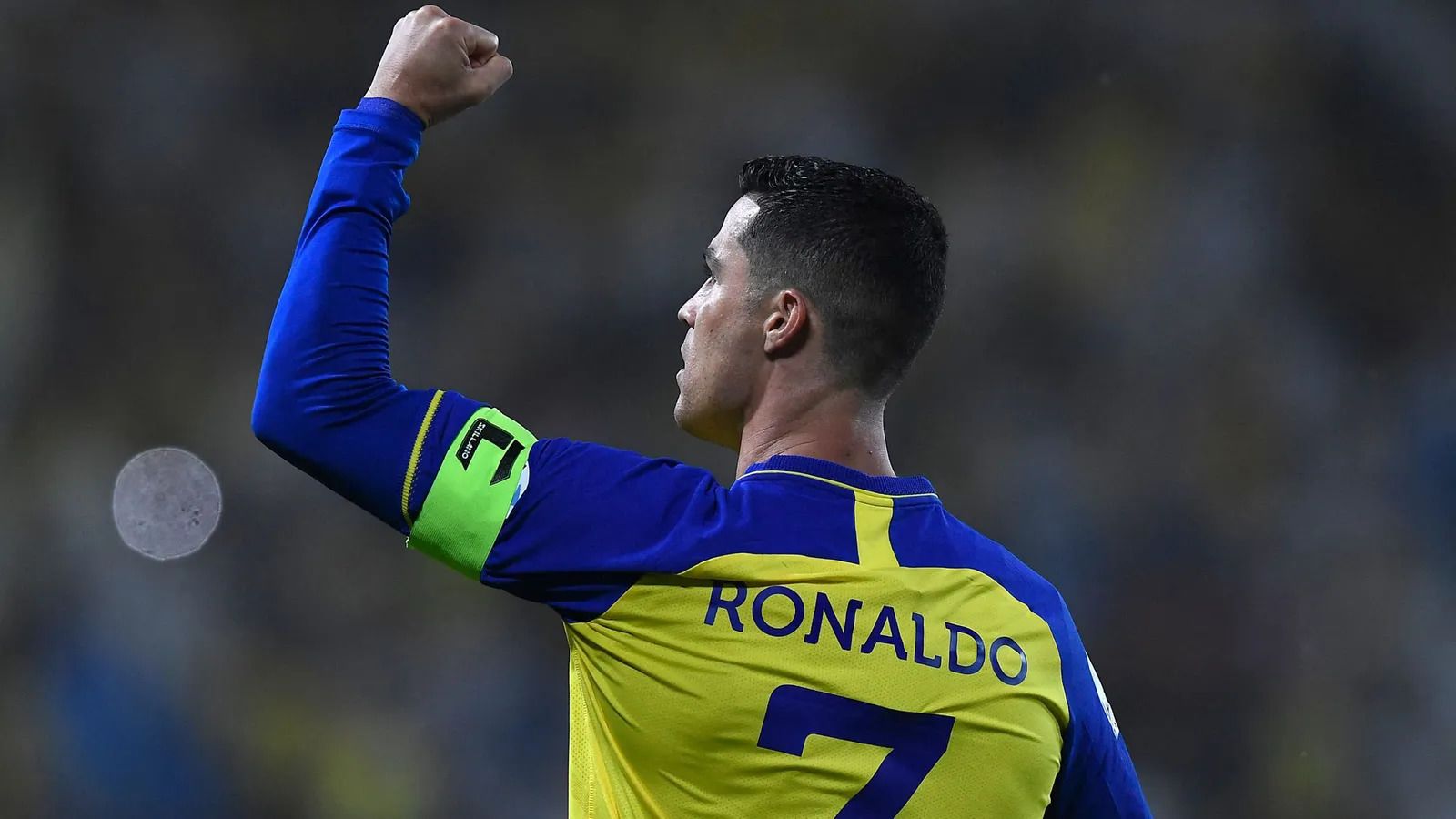
Why people reward innate talent over hard work
In almost every discipline, success comes from a combination of talent and grit. But if you listen to most famous figures describe their life journeys, you’ll soon hear them waxing lyrical about their hard graft, while strangely downplaying the role of their innate abilities.
Thomas Edison may be the most often quoted, with his claim that “genius is one percent inspiration and ninety-nine percent perspiration”, but many other variations exist. Just consider Octavia Butler’s advice for new writers. “Forget talent. If you have it, fine. Use it. If you don’t have it, it doesn’t matter. As habit is more dependable than inspiration, continued learning is more dependable than talent.” The Portuguese footballer Cristiano Ronaldo also emphasises the blood, sweat and tears that went into his training. “Talent without work is nothing,” he said, when asked about the secrets of his success on the pitch.
Such narratives may be beneficial for celebrated figures who wish to appear humble and grounded. But recent psychological research shows overemphasising the importance of hard work could backfire in many professional situations – thanks to a phenomenon known as the “naturalness bias”. These studies suggest people have greater respect for those with an innate gift than for those who have had to strive for their success.
The naturalness bias is thought to operate below conscious awareness, and the consequences can be deeply unfair. In recruitment, for example, interviewers may prefer a less qualified candidate if they believe their achievements arose from natural talent – compared to a more accomplished candidate who demonstrated grit and determination.
Fortunately, the scientists behind this research have some advice for the ways that we can avoid being ‘punished’ for our hard work.
Unadulterated genius
In consumer psychology, the term “naturalness bias” is often used to describe our preference for natural over synthetic goods. The author Malcolm Gladwell seems to have been the first to apply the concept to human abilities, during a presentation to the American Psychological Association (APA) in 2002. “On some fundamental level, we believe that the closer something is to its original state, the less altered or adulterated it is, the more desirable it is,” he declared. By that logic, he proposed, someone who had to work hard to achieve success has essentially gone against their “nature”, and their achievements would be respected less.
Gladwell’s argument was largely based on observation rather than experimental evidence, but Chia-Jung Tsay, an associate professor at University College London School of Management, has since put the idea to the test in a series of studies.
 Portuguese footballer Cristiano Ronaldo has said "talent without work is nothing"
Portuguese footballer Cristiano Ronaldo has said "talent without work is nothing"
Tsay’s initial experiment, conducted while she was at Harvard University, examined people’s perceptions of musical talent. The participants were all trained musicians who were presented with two 20-second clips from a performance of Stravinsky's Trois Mouvements de Petrouchka. Both extracts were played by the Taiwanese pianist Gwhyneth Chen – but the participants were led to believe that they came from recordings made by two different pianists.
With each track, the participants were given a short biographical text that either emphasised the natural talent of the performer, or the hard work that had helped them to develop their art. After listening, they then had to rate the performer’s ability, chances of future success and employability as a professional musician.
In theory, the participants should have rated both extracts the same. (They were, after all, hearing the different parts of the same performance.) Yet Tsay found that the biographical information had a notable influence on their judgements: they gave significantly higher ratings if they had read about the performer’s innate genius, and lower ratings if they had read about the performer’s dedication to their daily practice.
Surprisingly, these judgements directly contradicted the performers’ overtly expressed beliefs about the makings of musical success. When they were directly questioned on what factor was more important for musical achievement, most chose effort over talent. Given this result, Tsay suspects the naturalness bias may be a result of the brain’s non-conscious processing. “We may not be aware of the disconnect,” she says.
Born for greatness
To find out whether the naturalness bias could apply to other domains, besides music, Tsay designed a similar experiment that examined people’s attitudes to entrepreneurial success.
The participants were each given a profile of a budding entrepreneur and a one-minute audio presentation of their business plan. The information was identical in each case, apart from a few sentences describing how they had arrived at their current successes. For half the participants, this biographical information presented the person as a striver who had worked hard; for the other half, the profile depicted a natural with an innate talent.
After reading the profile, the participants then evaluated the entrepreneurs and their business proposals on various scales. Tsay found the same kind of judgements that she had seen in the assessments of musical ability. On average, the participants had greater respect for the natural’s achievements, and rated their business plan more highly. And expertise did little to reduce the prejudice; if anything, the bias was stronger among those with greater entrepreneurial experience, such as those who had already served as founders or investors.
Tsay suspects the naturalness bias may be a result of the brain’s non-conscious processing
Such biased decision-making can come with a significant cost. When asked to directly compare various candidates, Tsay’s participants were willing to invest in entrepreneurs with poorer intelligence test scores (by 30 IQ points), fewer years of leadership experience, and $31,000 (£24,865) less in accrued capital – simply because they were said to have reached their current success through their natural talent.
The naturalness bias emerges at a very young age. Working with colleagues at the Hong Kong University of Science and Technology, Tsay found children as young as five show greater respect for those with innate abilities. In this case, the participants were told a story about two people that described how easily they made friends. They instinctively preferred the person who was naturally popular, compared to the person who had worked hard to build their social skills. “The naturalness bias is very generalizable across domains, ages and cultures,” says Tsay.
Mind your mindset
Tsay’s work on the naturalness bias intersects with a large body of psychological research on the ways that our personal beliefs shape our education and professional development.
According to these studies, people with a “fixed mindset” believe that their own abilities are set in stone, while those with the “growth mindset” tend to see their abilities as being malleable. In general, people with the growth mindset are more resilient against setbacks and more likely to persevere towards their goals – resulting in better overall outcomes.
Given this research, many schools and organisations have now started to take part in initiatives that encourage the growth mindset among students and staff.
“Most of the mindset research that's out there looks at what I think and how that shapes the way that I react to different situations and perform as a result,” says Aneeta Rattan, an associate professor in organisational science at London Business School. “What I love about Chia-Jung Tsay’s work is that it really flips this perspective and looks at how we’re evaluating others.”
Leaders, she suspects, may pay lip service to the growth mindset while still showing an unconscious preference for people who appear to be innate talents. She hopes that managers might now try to take this into account in their decision making. “We need to catch ourselves and catch each other when we fall for this bias.”
 Research has revealed an innate bias towards natural talent over hard work
Research has revealed an innate bias towards natural talent over hard workBalanced perspectives
On an individual level, the existence of the naturalness bias might influence the way we present ourselves to others, so that our achievements are not unduly overlooked.
At this year’s annual convention of the Society for Personality and Social Psychology, Tsay’s colleague Clarissa Cortland presented the results of a survey examining the attitudes of 6,000 university alumni working as business leaders. When asked to describe their career journey, around 80% of the respondents focused on their effort and discipline over their innate ability. That figure was even greater when they had to imagine describing that journey to other people. “There’s an instinctive shift to ‘striver descriptions’ when self-presentational motives are high,” said Cortland.
One reason could be that most people wish to avoid seeming arrogant, and believe that focusing on hard work over natural talent can make them seem more grounded. Arrogance is an unattractive attribute and during a job interview, for instance, it may signal that you will be disagreeable with the rest of your team and struggle to follow orders.
Along these lines, research by Christina Brown, an associate professor at Arcadia University in Pennsylvania, US, has shown certain contextual factors can mitigate the bias. While people may prefer natural geniuses for jobs that require a single star performer to shine, Brown found that people tend to prefer strivers for tasks that require cooperation. Most modern careers are going to require a certain level of teamwork – and if we solely emphasised our innate ability, we might come across like a diva who will struggle to collaborate.
The smartest solution, then, may be to give a more nuanced picture of our success without focusing exclusively on one element or the other. At a job interview, for instance, we could make a point of discussing the areas that had needed extra dedication while also listing the innate strengths that had helped us to get ahead. “It’s possible that we have just been emphasising all the hours of effort and education,” says Tsay. “But there are still some things that probably came easier to us, and it’s OK to reveal those balance out the narrative.”
Whether the ratio of inspiration and perspiration is 99 to 1, as Edison suggested, or a 50:50 split, you can acknowledge how both characteristics led to your success. Only then will you win the respect that you deserve.











